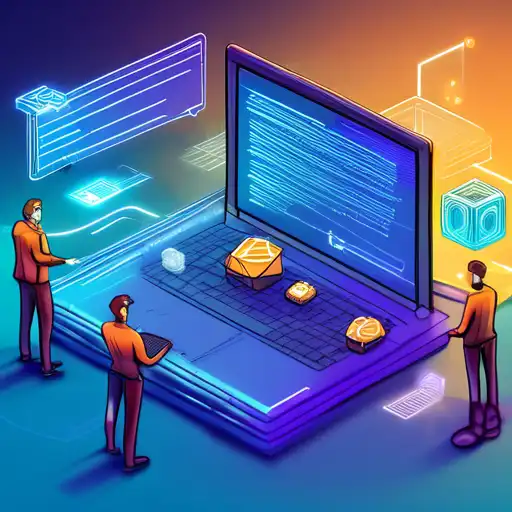Introduction to Smart Contracts
Smart contracts represent a revolutionary aspect of blockchain technology, enabling automated, self-executing contracts with the terms of the agreement directly written into code. These digital contracts run on the blockchain, ensuring transparency, security, and efficiency without the need for intermediaries.
How Smart Contracts Work
At their core, smart contracts are programs stored on a blockchain that automatically execute when predetermined conditions are met. They follow simple "if/when...then..." statements that are coded into the blockchain. This automation not only speeds up transactions but also eliminates the possibility of manipulation or downtime.
Benefits of Smart Contracts
- Trust and Transparency: Since the contract terms are visible and accessible to all relevant parties, there's no need to question the integrity of the process.
- Security: Blockchain's decentralized nature means that smart contracts are resistant to hacking, as there's no central point of failure.
- Efficiency and Speed: By automating tasks that would typically require manual processing, smart contracts can significantly reduce the time taken to execute agreements.
- Cost Reduction: Eliminating intermediaries from the equation reduces fees and saves money for all parties involved.
Applications of Smart Contracts
Smart contracts have a wide range of applications across various industries. In the finance sector, they can automate payments and claims processing. In real estate, they can streamline property sales and rentals. They're also transforming supply chain management by enhancing traceability and accountability.
Challenges and Considerations
Despite their advantages, smart contracts are not without challenges. Issues such as coding errors, legal recognition, and scalability need to be addressed to fully realize their potential. It's crucial for developers to conduct thorough testing and for legal frameworks to evolve alongside this technology.
Future of Smart Contracts
The future of smart contracts is incredibly promising, with ongoing advancements in blockchain technology paving the way for more complex and versatile applications. As the technology matures, we can expect to see wider adoption across sectors, further revolutionizing how we conduct transactions and enforce agreements.
Smart contracts stand at the forefront of blockchain innovation, offering a glimpse into a future where transactions are more secure, efficient, and transparent. By understanding and leveraging this technology, businesses and individuals can unlock new opportunities and streamline their operations like never before.
